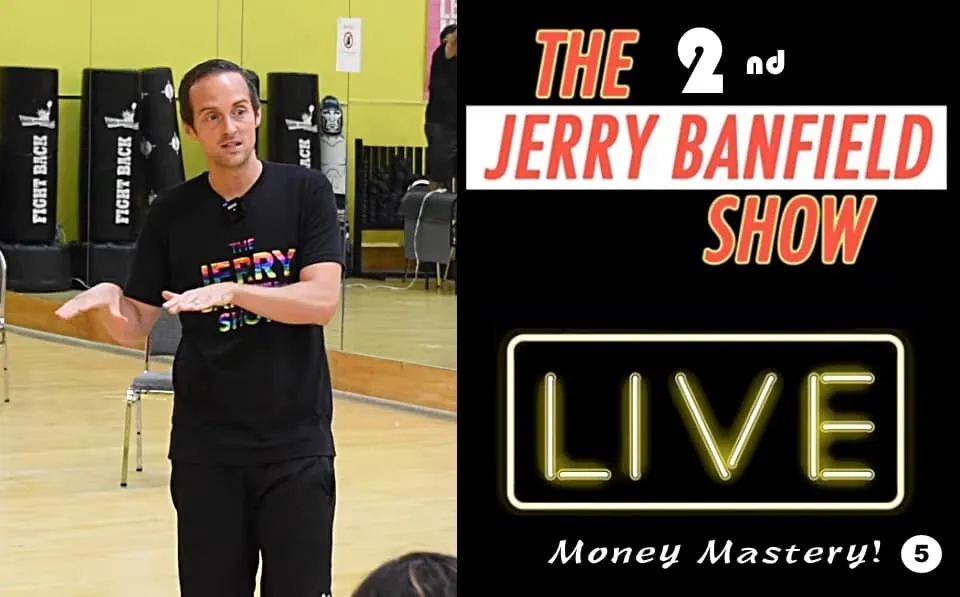
Would you like to know why I went all in for the Jerry Banfield show because in my experience this is the thing I had to do?
The Second Jerry Banfield Show – I'm All In!
I sold everything. I sold my whole studio. Now, I don't have anything else to do, and if you want to look at it like a job and a side hustle, I quit my job.

Now I'm all in. I don't have anything else to do with my time and my energy, and as soon as I did that, it's like something magic happened.
People said that this is not the time in April and beginning of May 2020, to quit my main thing and do an in-person show.

I said, "It doesn't matter if you don't think so, like this, I know this is coming from within, and what I heard is this is a great time to quit what I'm doing and do my show because what else do you have to do that's like this at 1:00 PM on Sunday?"
If you want to go somewhere and network and get uplifted, almost nobody else is doing events right now. In terms of competition, there's nothing else you can do, which means this is what I call "zero to one."
If you really want success with making money and helping people, the key is to go from zero to one, to offer something where there's nothing else in that space, like if you want to make YouTube videos, make a YouTube video there's nothing else like it.
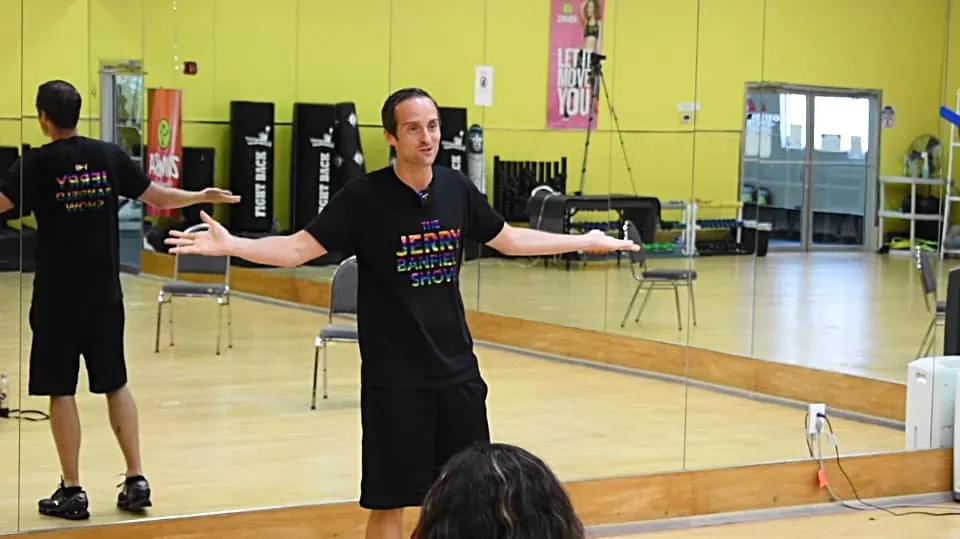
I've done a few of those that have done really well. I made this "League of Legends" video, where I paid a professional coach to coach me through a game. I did nothing to market it and YouTube put that video viral all by itself.
I paid the coach like $30 or $50 and the video made thousands in ad revenue, it got me tons of subscribers, too bad I quit playing the game right after I did that video.
You see, I offered something where there was nothing else like it, and people are impressed. That's actually easier with in-person stuff to offer something where there's nothing else like it because in person there are not as many options.
If you try to do something online while the whole world can do something at that same space. But if you offer something in person, it can be anything. It could be a dog-walking service, it can be coaching. It can be massage. It can be sales training.
If you can offer it in person, people just don't have as many choices. If you can find a way to be different, then you can really offer something that there's not another choice.
So that's my answer from my experiences, if you really want to make money and do what you love, it's all about clearing every single other thing out first.
Then what people said is, how are you going to make money?
What I noticed is you got to clear things out and really jump into the unknown first, and then the details will be clear.
With the show yesterday, the money thing hit me right in the face because some people came and paid, but some people didn't, and then collecting the money from people disturbed my energy where I couldn't really just be… I'm really grateful every single one of you is here today.
Nancy walked in first. Now, if I had asked each of you to pay and you know, one or two of you hadn't paid… Now, I'm just grateful that these people that have paid her here and I'm not so grateful for the people who didn't pay her, you see how that messes things up?
And that's how I felt yesterday. What I could see is the bigger vision like if this show's gonna make a million dollars, how do I get there?
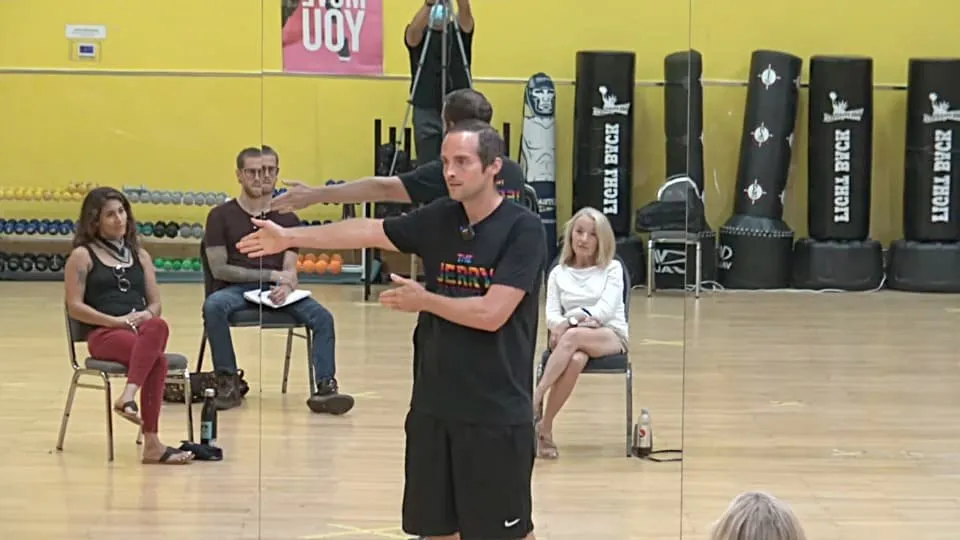
I can see that this show is going to make a million dollars, it's all about the audience. Having people actually come to the show is the most important, that's the number one priority.
So, the number 2 priority is that it should make money. I mean, for me, the number one priority is I want to do the show, and have people here to see it, that's most important. The money is a secondary consideration.
Therefore, I don't want to let money get in the way of the primary consideration. If something's primary, the secondary does not get in the way of it, or it's not primary.
Then, I woke up today, and I said, "Alright, the show needs to be free, no more $20 tickets for the show. That's the path to making a million dollars show,” and Laura asked, "Well, how are you gonna make money?"
I answered, "I don't know exactly how it's going to work out, but I know it is going to work out because there's never been a day in my life where I've not had enough money. Not one!"
I've talked a lot. What other questions do you guys have?
Participant:
So what it sounds like, it's like you had a lot of moments where doubt kind of came into your life and kind of tested you. Right? When did you finally say, "F. you the doubt" and you know, kind of like, "Okay, you know what? I'm worth really stepping it up and honoring that this is where I'm at right now." What made that shift for you?
Jerry:
Wow. That's a fantastic question, thank you for asking that.
I can give you the exact moment. I was reading a book called "The Top 5 Regrets of the Dying." Has anybody read that already? It's so good.
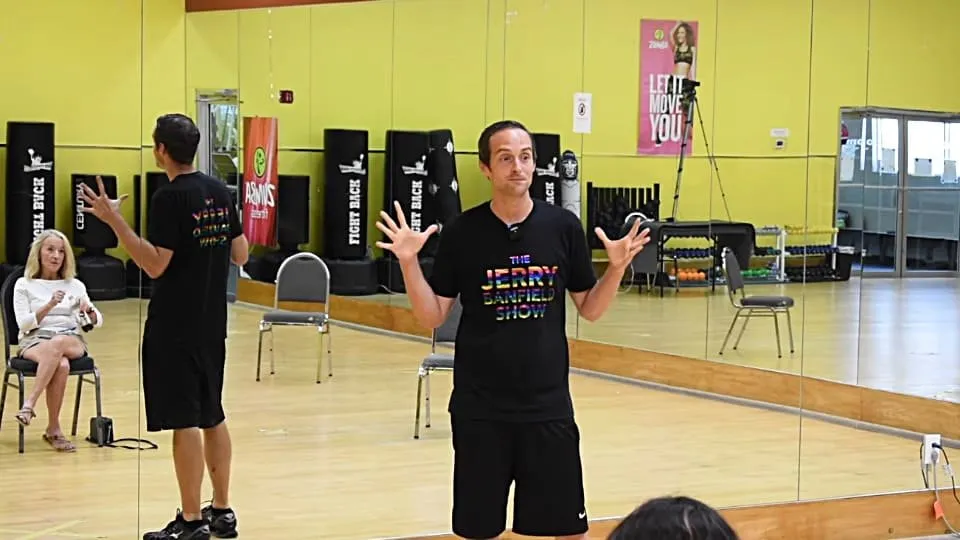
"The Top 5 Regrets of the Dying" and Natalia's question was: "You've been through a lot of moments where doubt was obviously getting to you, at what point did you push through that?"
I remember the exact moment. I was in my office. I'd been listening to the book, the "The Top 5 Regrets of the Dying" by Bronnie Ware and the book had asked this question:
"If you had five years to live, if you knew that's it, five more years, what would you change in your life?"
My first response was nothing, nothing! My life's perfect.
Then, I thought a little more about it like, "You know what?" A little bit of a little tiny voice came up and it said one thing, "Ask that again."
So I asked, "What would I change if I only had five years left?" and I knew what I would change in my life.
The thought that came across my mind was I would refuse to come into this studio and film videos, and that hit me hard.
It hit me really hard because all my mental energy was into, "I'm going to make these courses. They're going to make a lot of money. It's going to fix this little debt problem that I've racked up," which is if you add it all together, it's over $600,000 currently for my wife and I, all of it.
She just has student loans, but she's got a lot of student loans because she went to law school.
But that was the one thing I felt like, "Oh, oh!" and I've learned in my life when you get an answer like that, that's "Oh, oh!" because now I consciously know if there was one thing to change in my life, this is it. But this is an inconvenient change.
Essentially, the same kind of thing like if you asked that question, you had a job and the one answer was "Quit this job" and you're at work, "Oh wow. I don't know what I'm going to do to make money. I don't know how that's going to look."
It took a day or two for that to really marinate, and then I just had a rough day. I was all sad and uncomfortable and Laura asked, "What's wrong?"
I answered, "I hate going into that office to film videos, I hate it. I'm wasting my life in there. I've done like 5,000 videos. That's enough."
People then say, "Oh, it's the Internet. You think the Internet's evil now?"
I say, "No, I just have used it enough. I don't want to do that anymore."
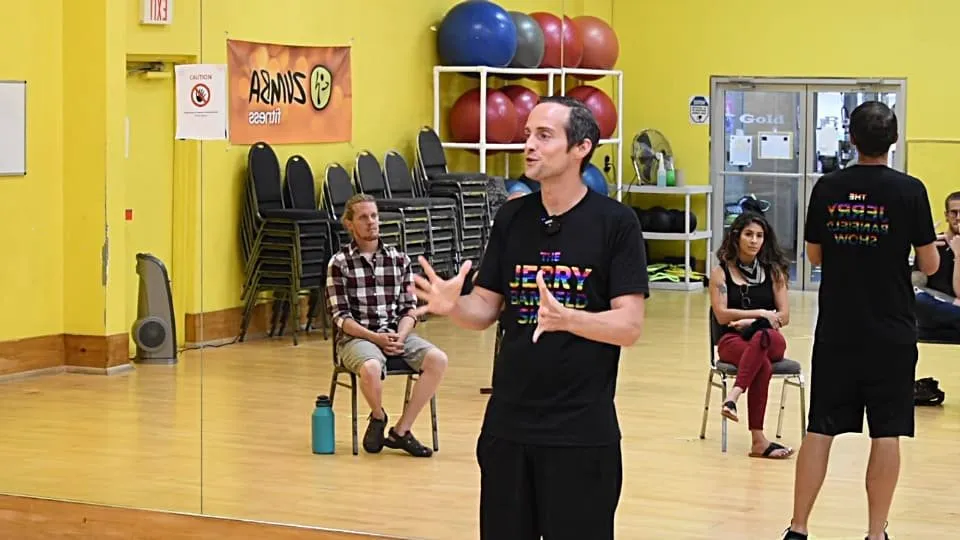
So that was the moment when I asked that question, you know, let the first initial kind of BS answer roll by, and then really ask it again: "What would I change in my life?"
And now there's nothing I would change in my life. Now, if I knew I only had five years left, this is exactly where I'd be.

I love you.
You’re awesome.
I appreciate the chance to serve you today and I will see you again soon.
Love,
Jerry Banfield
Edits from video transcript by Michel Gerard.
Posted from my blog with SteemPress : https://jerrybanfield.com/all-in/
